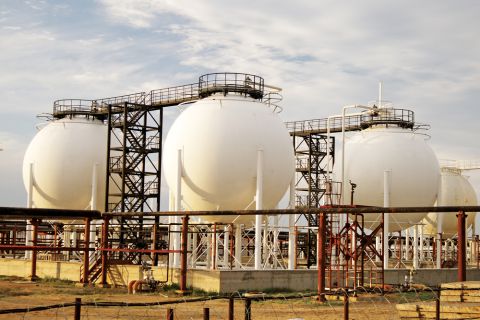
BP (NYSE: BP) is experimenting with blockchain to make oil and gas trading more efficient due to the latest sign of big companies bringing the database technology into mainstream use.
BP said it was investing in pilot programs to explore the “practical and ethical” implications of using blockchain in the energy sector.
“There are uses for blockchain that could give us a competitive advantage,” David Eyton, head of technology for BP, said. “Blockchain can be much more efficient in terms of speed and verification of transactions.”
Blockchain—a digital ledger system that records online transactions—is often seen as a disruptive “anti-establishment” innovation associated with digital currencies, such as bitcoin.
BP’s interest shows that multinational companies are increasingly seeing opportunities for blockchain to streamline financial processes and cut back office costs by removing middlemen and invoicing from many transactions.
BP has been working with Eni (NYSE: E), the Italian oil major, and Wien Energie of Austria on a pilot program. The three groups are now working with BTL Group Ltd., an Anglo-Canadian technology company, to commercialize the system. Other energy companies have been invited to participate.
Eyton said that oil and gas trading was just one of many potential applications for blockchain across BP, such as using traditional currencies rather than cryptocurrencies.
“In a big company, with lots of different corporate entities, you have to manage financial settlements and reconciliation between different parts of the business,” he said. “A lot of that lends itself to blockchain.”
Other examples of ‘traditional’ industries adopting blockchain include AP Moller-Maersk, the Danish shipping group, which is using it in marine insurance contracts and Europe’s biggest banks, including HSBC Holdings PLC (NYSE: HSBC) and Deutsche Bank AG (NYSE: DB), in cross-border trade finance.
Andrew Woosey, a partner at EY who has worked with BP on its pilot program, said blockchain could lead to “reduced risk, better protection against cyber threats and ultimately significant cost savings.” But “further engineering and organizational effort” was needed to reach this potential, he said.
Blockchain is part of a wave of digital technology being adopted across the oil and gas industry as the sector tries to modernize.
Recommended Reading
For Sale, Again: Oily Northern Midland’s HighPeak Energy
2024-03-08 - The E&P is looking to hitch a ride on heated, renewed Permian Basin M&A.
Gibson, SOGDC to Develop Oil, Gas Facilities at Industrial Park in Malaysia
2024-02-14 - Sabah Oil & Gas Development Corp. says its collaboration with Gibson Shipbrokers will unlock energy availability for domestic and international markets.
E&P Highlights: Feb. 16, 2024
2024-02-19 - From the mobile offshore production unit arriving at the Nong Yao Field offshore Thailand to approval for the Castorone vessel to resume operations, below is a compilation of the latest headlines in the E&P space.
E&P Highlights: Feb. 26, 2024
2024-02-26 - Here’s a roundup of the latest E&P headlines, including interest in some projects changing hands and new contract awards.
CEO: Continental Adds Midland Basin Acreage, Explores Woodford, Barnett
2024-04-11 - Continental Resources is adding leases in Midland and Ector counties, Texas, as the private E&P hunts for drilling locations to explore. Continental is also testing deeper Barnett and Woodford intervals across its Permian footprint, CEO Doug Lawler said in an exclusive interview.





